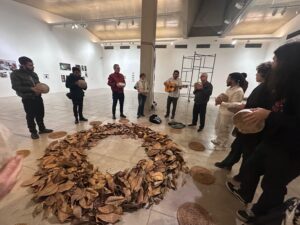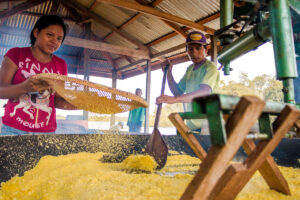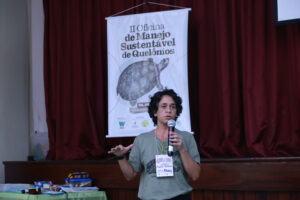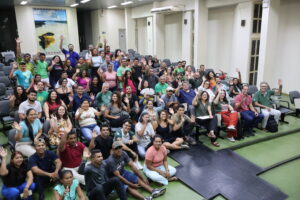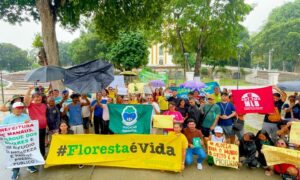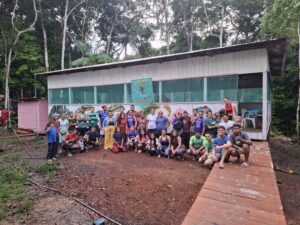The importance of Youth Leadership to Regional Development
By Maria Cunha and Phamela Barbosa
Translated by Laiane Lessa
When we talk about young people, we are referring to the age range that covers adolescence and youth, typically between the ages 15 and 29 (National Youth Council – CONJUVE), although the definition may vary according to cultural and institutional context. This phase of life is marked by intense physical, emotional and social transformations, which shape these individuals identity and future trajectory.
In contemporary times, young people face various challenges, such as pressure for academic and professional performance, social media influence, and issues related to mental health. At the same time, young people play a crucial role in innovation and in building a fairer and more sustainable world. Frequently, they are the first people to adopt new technologies and boost social and cultural movements. Thus, becoming the protagonist of their own trajectories.

The youth leadership is a reference to the ability of young people to become active agents in their community and in society in general. This involves the participation in decision-making processes, leadership in social projects, and engagement in activities that promote positive change. Public policies aimed at youth are essentials to guarantee that young people have the opportunities and necessary support to fully develop. In this segment, young people that lives and acts between the trees stands out in such importance and reference. These young people that ‘look beyond the branches’ see a world of possibilities and act setting strategies aiming a better quality of life to their communities. They are provided with better opportunities to become active, pursuing their dreams through empowerment, in collaboration with economic, social, cultural and sustainable development of their territories and communities.
The essence of the youth of Mid-Juruá in the fight for equal rights and opportunities is also part of the segment that is essential for promoting social inclusion and civic participation. When young people are included in the discussion and decisions that affect their lives and communities, they feel empowered and motivated to make a positive contribution. This not only strengthens the local democracy, but also assures that public policies reflect the needs and aspirations of young people.
With the proper support, young people can become leaders in their communities, promoting positive and sustainable changes. Young people who, despite the challenges, have a significant potential in the conservation of the Amazon, as well as preserving culture of the region. The Political Training Course for Young Leaders of the Mid-Juruá Territory, now in its second module, is an initiative designed to work the leadership of forest youth, encouraging them to become agents of transformation within the context of their territories and communities. Between the days of July 28th to 31st, the youth of Mid-Juruá Territory (RDS Uacari, RESEX Mid-Juruá, Fishing Agreement Area, Juruá, Itamarati, and representatives of Deni people – Kanamari and Kulina) had gathered at the Bertha Becker Center for Innovation and Education for Sustainable Development (Nieds Bertha Becker) in Campina, located in RDS Uacari, to learn about and discuss the topics of Associativism and Cooperativism as forms of organization and action within the territory.
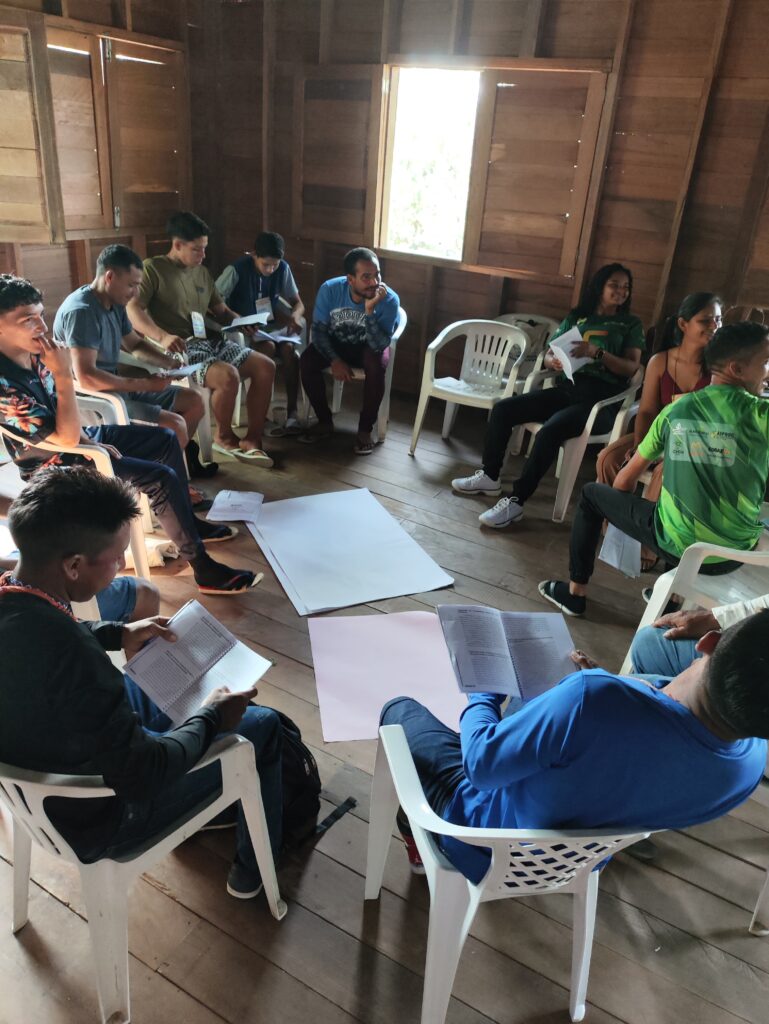

This module brought together around 80 representatives of youth from various communities in the territory, who, in a participatory manner, brought their concerns and struggles to the plenary session. Although recent, the results of this mobilization can already be seen, such as the JAVA (Young Adolescents of Vila in Action) case, from Vila Ramalho community. “Right after the first training module for young leaders, with lectures and discussions about the history of our communities and our first local leaders and with all those histories Celicia, Marquisson, and I decided to bring to the communities and to the school the proposal to create a group of young people because we realized the utmost importance of their participation in decision-making and their responsibility for everything that aims at the well-being of the community and the territory.
To create the group, we requested professor Leandro for his support to put the idea on paper, and once everything was on paper, we talked to the leaders of the Vigia and Nonato community and we had their full support! We gathered all the young people together, and 35 people among the young and teenagers agreed to join the group and we chose the name, symbol and motto. Finally, we made the group official by presenting it to all the community members, where the support was very good,” said Francisca Braga de Lima, better known as ‘Tchuca’, President of the JAVA Collective. She says that the main motivation was inclusion: ‘our motivation was to integrate young people and teenagers into the community in a way that they don’t feel excluded, to bring them closer to the family, school, church, and each other, as well as to value our local culture’.
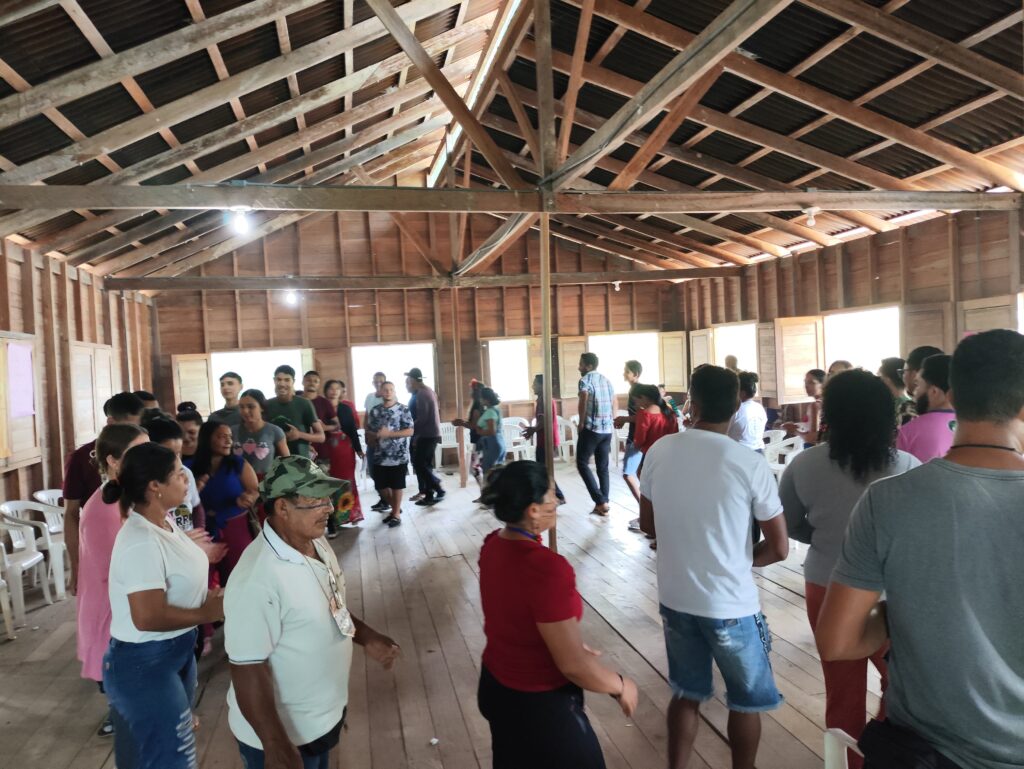
The Course has two more modules confirmed. The next topic to be discussed is “Public Policies and Governmental Organization” – addressing the functioning of policies that have an impact on local reality and the forms of civil society advocacy, providing more resources to strengthen the various youth mobilization in the territory. ‘The political training course for young leaders of Mid-Juruá is a support network for the group, as it was through the lectures that our interest was awakened! The history of our territory is clearly and objectively explained by moving testimonies that make us want to continue on this journey. We hope other young people can join once this cohort ends and learn and contribute to our group what we didn’t cover. In the future, we aim to become an association and serve as a support network for other communities’, said Francisca.
Youth leadership in Mid-Juruá is emerging as a vital force for regional development, transcending socio-economic and cultural barriers. By assuming leadership roles and engaging in their communities, youth not only strengthen social cohesion but also catalyze changes that resonate throughout the region. Youth-led initiatives have potential to shape a more sustainable, inclusive and prosperous future, demonstrating that regional development is inseparable from the active and conscious involvement of new generations.

